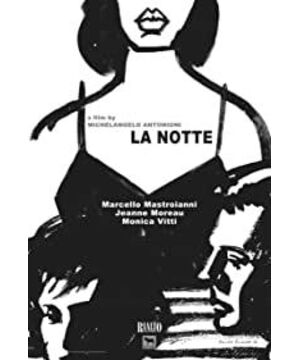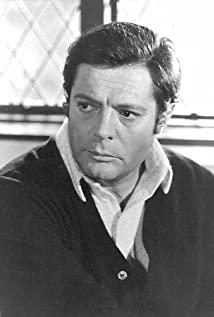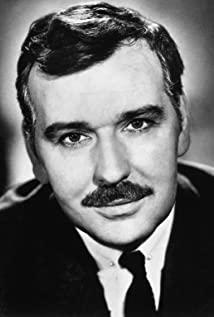However (disregarding the crisis of intellectuals in the mid-twentieth century), what the film describes is precisely nothingness, alienation, and indifference. We have even lost the experience of watching the film as others because of our indifferent nature. The film has become a stage of refraction and reflection. The actor is our shameless clone: we use Lydia’s eyes to spy on Gio in the dark. Vanni discovered that Giovanicia was exactly the self in the mirror, so we used him to reach his favorite girl, Valentina, only to find that we couldn't escape ourselves. Yes, existentialism is such a sluggish journey, we cannot avoid others, and then we cannot avoid ourselves. Voice is always dual in the film. Just as Giovanni wrote in his letter, "No one or anything can destroy such a life. There is only one threat we face, which is the habit of living. It becomes numb and insensitive.” Like a fate that cannot be escaped but is actually predictable, it finally emerges on paper, defeating eternal love, and becoming a tired but ideal grave of life.
A scene in the rain is really beautifully filmed. The drenched car fainted into a silhouette driving in the dark and bright night light. In a dark place, we cannot see Lydia and Roberto sitting inside; in a light place, through the dense raindrops, we can catch a glimpse of Lydia’s indifferent portrait from time to time—portrait, if you say The woman who was sleeping quietly beside Giovanni, representing the eternal portrait of love, was also silent at this moment, except for any Lydia, finally in the flow of time, the same, strong but Represents a realistic portrait that I never love again.
At the rainy intersection, Lydia got out of the car and rejected Roberto the molester. However, what really saddened Sanity was that her unloving and indifferent thought finally gave Giovanni on the lawn. Blurted out. In a period of emotion, we are faced with the double fear of the lover's change of heart or our own change of heart at any time. One blind spot is that perhaps the latter poses a threat to self-worth more easily than the former. Lydia's confession is: "If I die here, it is because I no longer love you." It is not "If I die here, it is because you no longer love me." While they cannot save their dying love, they also cannot save their heart that is no longer in love. After being tightly linked by something "longer than time and stronger than habit", they Being separated tightly by it again, this is the simplicity of life, or mediocrity.
If I die here, it is because I no longer love you. I wish I was old, and I wish all my life was given to you. I wish I no longer exist, because I can't love you anymore. That's it.
View more about La Notte reviews











